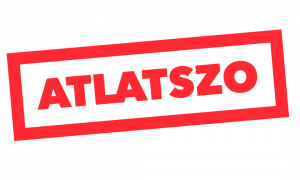The https://english.atlatszo.hu use cookies to track and profile customers such as action tags and pixel tracking on our website to assist our marketing. On our website we use technical, analytical, marketing and preference cookies. These are necessary for our site to work properly and to give us inforamation about how our site is used. See Cookies Policy
Hungary by Atlatszo – Hungarians protest against the government in front of Parliament every night
This is what Atlatszo.hu wrote this week:
The Orban government spent billions on Hungarian football clubs in Serbia, Romania and Slovakia
The government’s soccer mania did not stop at the borders of Hungary: construction of stadiums and soccer academies have started in neighboring countries where ethnic Hungarians live. We present how €49.5 million was given to clubs in Slovakia, Romania, and Serbia.
Hungarians protest against the government in front of Parliament every night
Thousands went to the streets of Budapest after the Parliament passed a bill that allows employers to request 400 hours of overtime work from employees annually. Despite the cold weather, protesters were out in the streets until after midnight every night; police responded by using tear gas.
TV anchor close to PM Viktor Orban gets consultancy contract at Budapest Metropolitan Court
Bence Takács is the former communications director of the Felcsút Soccer Academy and he was recently appointed as external communications consultant of the Budapest Metropolitan Court. Takács is said to be close to PM Orban and our sources at the court are afraid that with Takács politics entered the court.
Fraudsters sentenced to jail fled by the time the Szolnok Court notified the police
A defendant in a high-value tax fraud case was ordered to be put under house arrest, but the court failed to notify the relevant police station about this decision for an entire week. In the meantime, two other defendants in the same case fled. The court issued arrest warrants for them.
In 2017 the Ministry of Interior provided 6.5 million euros to the district council of Kőbánya, a Budapest district that is home to the infamous, crime-ridden Hős Street blocks. The aim of the money is to solve the crisis in slum-like Hős Street, but the district has only spent only 402 thousand euros so far.
Here is your reading list about what is going on in Hungary:
CNN: Hungary’s ‘slave law’ passes, sparking protests in parliament and on the streets
Hundreds of protesters marched through Budapest and gathered at the parliament building late into Wednesday night, after Orban’s hardline Fidesz party pushed through legislation allowing employers to ask their workers to take on up to 400 hours’ overtime per year.
The New York Times: Hungary Creates New Court System, Cementing Leader’s Control of Judiciary
Once the new system begins operating, Mr. Orban’s justice minister will control the hiring and promotion of its judges, who will have jurisdiction over cases relating to “public administration” — including politically sensitive matters like electoral law, corruption and the right to protest.
Bloomberg: Juncker Lashes Out at Hungary’s Orban for Spreading Fake News
“I made it very clear to the European Council that some of the prime ministers sitting around there, they are the origin of fake news,” Juncker told reporters in Brussels. “When Mr. Orban, for example, is saying that I’m responsible, guilty for the Brexit: fake news.”
The Atlantic: Viktor Orbán Is Exploiting Anti-Semitism
From using anti-Semitic tropes to demonize George Soros to praising Miklós Horthy to seeking to honor the notorious World War II–era anti-Semite Bálint Hóman, Orbán, the self-styled defender of Christian Europe, has shown himself willing to tap into this hatred to score political points.
OCCRP: Fake Parties, Real Money: Hungary’s Bogus Party Problem
Hungarian police are investigating some 100 cases of suspected election fraud by parties that appear to have been created shortly before the 2014 elections to cash in on lucrative campaign subsidies. But experts say that those parties aren’t just formed to siphon campaign money. They’re helping Orban cement his hold on power.
DW: Hungary: Europe’s champion of conspiracy theories
Conspiracy theories are gaining a lot of traction in enlightened, democratic societies. The phenomenon is finding many adherents in Europe, specifically Hungary, as political scientist Peter Kreko tells DW.


